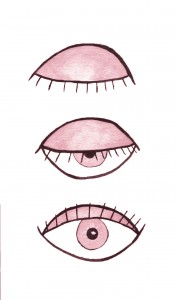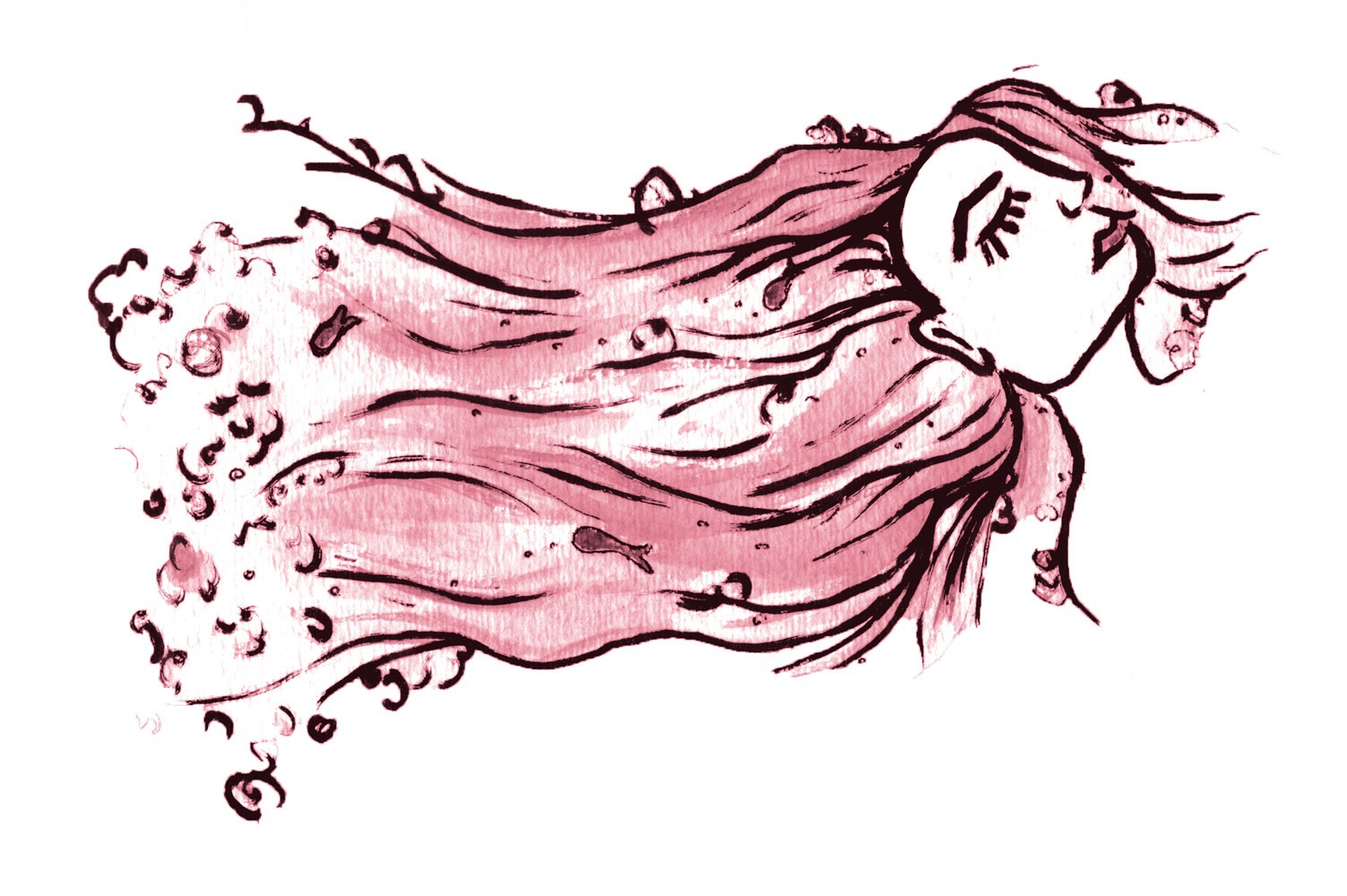Indigenous folks’ relationships to feminism differ for many reasons. Some believe Indigenous feminism is redundant. Saying you’re Indigenous insinuates that you’re also feminist, as Indigenous groups are set on dismantling the ongoing process of colonialism, of which patriarchy is a structure. Because of feminism’s history of erasure of marginalized groups, some folks don’t adhere to the definition of feminism at all. Others believe that a commitment to feminism goes against Indigenous sovereignty. That feminism as a movement exists in a colonial framework, which often ignores or perpetuates colonialism, heteropatriarchy, and heteropaternalism.
This is by no means an exhaustive list of Indigenous folks’ relationships to feminism. In fact, I don’t think there will ever be a simple list to which we can turn and examine. When you are an Indigenous person whose culture, family, and history have been systematically taken apart and covered up, everything becomes a process of re-learning: re-learning your history, your family, your self, and that self’s relationship to the world. Learning is unique, and it is constantly changing, but the process is necessary and brilliant in its own right. Centering Indigenous voices is still imperative to the work of uncovering that knowledge, of reshaping, of revitalization. And figuring out feminism is a part of this process, too.
With this in mind, it goes without saying that there are important considerations for Indigenous folks when entering into events and spaces that centre on the term “feminist.” How do Indigenous feminists, or Indigenous peoples who don’t identify as feminists, navigate themselves in a structure of activism that has historically erased Indigenous women’s involvement, and, often, their leadership? How do Indigenous folks protect themselves from being tokenized or appropriated?

After listening to Dory Nason, an Anishinaabe professor in UBC’s First Nations and Indigenous Studies department, explain why she insisted on naming her class “Indigenous Feminisms” with emphasis on the plural, it became clear: just like an Indigenous person cannot, and should not, be lumped into one, pan-Indigenous group, Indigenous feminisms cannot be homogenized. What’s important, then, is to emphasize and represent these differing beliefs. Despite the many differences, they each need to be heard and celebrated.
This consideration is important as Room Magazine, a West Coast feminist literary magazine featuring writing from women (cisgender and transgender), transgender men, Two-Spirit and non-binary writers, kicks off the Growing Room Literary Festival on March 1-4. For this year’s festival, Room has partnered with Massy Books, an Indigenous owned and operated bookstore, to create Indigenous Brilliance, a reading panel occurring at the festival. The event will be hosted by Jónína Kirton and myself, and will feature emerging and established Indigenous artists Joanne Arnott, Carleigh Baker, Marie Annharte Baker, Gwen Benaway, Selina Boan, Molly Billows, Sharon Jinkerson-Brass, Samantha Nock, Deanna Partridge-David, and Bev Sellars.
During this event, these writers will be dedicating a portion of their reading to talking about a mentor, elder, or loved one. In this way, there will be far more voices on the Indigenous Brilliance stage than the twelve bodies that will physically occupy it. The stage will be filled with Indigenous voices from all over the world and all across time. This serves as a way to acknowledge our nations, our communities, and the people around us, it allows us to do what we always do: hold each other up.
Simultaneously, the Indigenous Brilliance reading will allow differing ideas of feminism to be represented. Every one of those voices will be bringing their own beliefs and views. Where whitestream feminism has often excluded groups that don’t voice the homogenized vision of the whole, Indigenous feminisms celebrate this. It is intentional and imperative to represent that diversity in our communities. It is the embodiment of self-determination to refuse to adhere to any one definition of feminism, to continue to question and uncover more about the representation of feminism in history, and to create definitions unique to each individual. We don’t all adhere to the same structures of beliefs, and that’s something to be celebrated. That’s something to make room for.
x
The Indigenous Brilliance reading will occur on Friday, March 2, 7:30pm–9:30pm at the Native Education College (285 East 5 Avenue). Full event details and a list of all other Growing Room events can be found on their website: roommagazine.com/festival
Jessica Johns is of Cree ancestry and a member of Sucker Creek First Nation. She is the Executive Editor of Promotions for PRISM international and is on the editorial board for Room Magazine, living and working on the traditional and unceded territory of the Musqueam, Sḵwxwú7mesh, and Tsleil-Waututh peoples. Find her on Twitter @stellaabrenda.
*I’m speaking from the academic standpoint on Indigenous feminism, which has been studied and written about far more extensively than I’ve done here. Some brilliant and thought provoking work that informed this article include: Indigenous Women and Feminism (Suzack, Huhndorf, et. al), Feminism for real: deconstructing the academic industrial complex of feminism (Edited by Jessica Yee), and “Decolonizing Feminisms” (Arvin, Tuck, and Morill).
*Though they haven’t written academic work about Indigenous feminism, my mom, sisters, cousins, aunties, and kokums are the strongest women I know, and continue to shape my views, my considerations, and my opinions daily.


